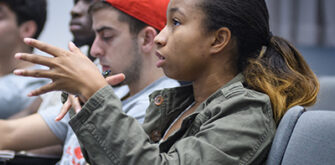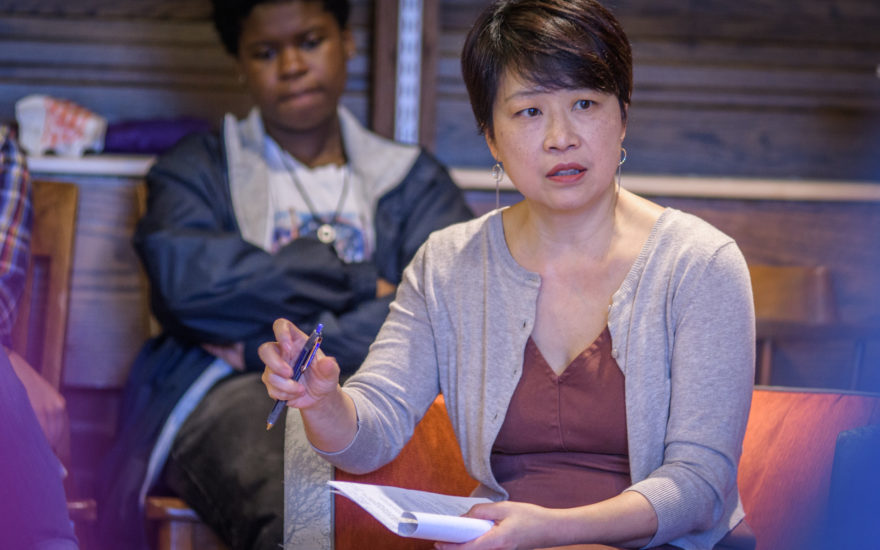Foundation courses
Core courses in Women’s and Gender Studies — WGS 110 – Introduction to Women’s and Gender Studies and WGS 200 – Introduction to Feminist Theory — will provide you with a solid foundation in women’s studies and gender analysis, while courses selected from many other departments will introduce you to a range of disciplinary approaches and perspectives.
Choose a specialization
Faculty from across disciplines are committed to teaching courses that explore the intersections of gender with sexuality, race, ethnicity, religion, age, class, ability, and other social identities, from within their disciplinary homes. You’ll work closely with a faculty adviser affiliated with the WGS program to refine your interests and develop an individualized area of specialization within the field. Areas of specialization cross at least two academic departments and form a coherent theme, such as:
- Women in comparative fiction
- Gender and environment
- Gender, war, and militaries
- Gender, identity, and sexuality
- Feminist critiques of globalization
You are required to complete a minor or concentration (a second major is strongly encouraged) in another field to support your specialization and to reinforce connections with other academic disciplines. Some popular combinations include: English, history, political science, psychology, and sociology.
Courses to support advanced study
After taking a skills or methods course to support advanced study in your area of specialization, you will be able to apply the knowledge and skills gained through WGS coursework to a culminating research project or applied experience through an advanced research seminar, internship, or a directed study with a faculty member. Our students contribute to the production of knowledge in both activist and scholarly spheres.


